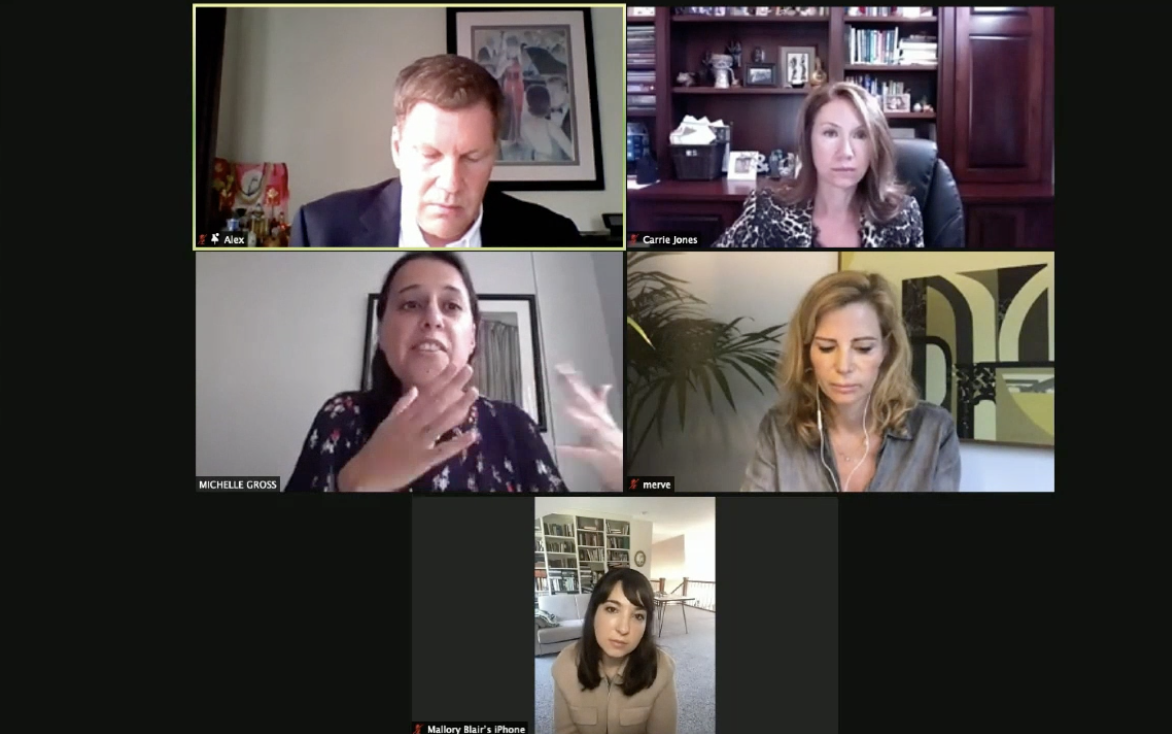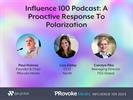Paul Holmes 20 Oct 2020 // 6:06AM GMT

Agencies that outperform their peers focus on mission, on process and culture, attendees at the Entrepreneurs’ Forum on day one of PRovokeGlobal heard of Monday, during a session sponsored by consulting firm Prosper Group and focused on “momentum agencies.”
“We define momentum agencies as agencies with revenue growth that consistently and significantly outpaces the industry,” said Alex Halbur, managing partner of Prosper Group. “Their growth is minimally driven by acquisition. Rather, the growth results from strong management of a series of variables that drive growth.”
He said the firm had found eight key variables:
- A compelling mission that attracts talent and clients
- Defined vision with a strategic plan on how to achieve it
- Compelling value proposition defined by deep knowledge and expertise
- Organizational structure that sells and services that value prop
- A belief in core methodology and process
- Culture: formal training around those methodologies
- A dedicated new business development function
- Understanding of how to manage an agency for fair profit
All four firms have strong mission statements, the principals averred.
“Mission is a big deal to us,” said Carrie Jones, founder and principal of JPA Health. “All of our staff are very focused on making the world a healthier place, by improving and protecting lives. That’s the reason they come to work. And we invite others to join JPA in that mission. We believe the more people who are part of this mission, the more work we can do, and the more of a difference we can make. So it’s a mission that is tied to growth.”
Merve Liebelt, general manager of the German operations of French agency Jin, offered a different but equally compelling view of her firm’s mission: “Our mission is that we are an agency with agency. We believe in social responsibility and personal accountability and understanding and utilizing the power of technology to make a positive impact on society.
“And we believe there is a responsibility when you try to shape opinions to check yourself that you are acting ethically.”
Halbur also emphasized the importance of process, particularly important for fast growing firms that typically add new people every year—and new disciplines—but need to maintain both quality control and culture.
Michelle Gross, president of Spectrum, said her firm had implemented a new framework and methodology. “It’s a take on the scientific method, we call it the Spectrumtific method, and this how we develop and execute strategic plans. It helps us bring together a multidisciplinary team to think about a clients problems. We think through the strategy, we come up with a creative platform, we think about how to execute across multiple platforms.”
Mallory Blair, CEO and cofounder of Small Girls PR, runs a very different firm, and she says, “The most fun challenge for me is how you develop a process around creativity and how you institutionalize coming up with first-mover ideas or ideas that have never been done before. It’s hard to create a template for that, but we have developed a process for that. We use heuristic thinking. And every time someone new comes into the company we teach them how to let go of the fear that comes with ideas that have never been done before.”
One tool is what Blair calls “creativity roulette,” which involves putting things important to the brand’s audience into a hat, as well as platforms the brand would like to move on to, and then “we mix and match.”
Adds Jones, “A good process does two things: it gives clients a level of comfort because they feel like there is a proven methodology, and it reinforces culture, because it lets everyone know that we are working in the same direction.”
Halbur also explored how agencies make decisions about where to invest, in new products and capabilities, and even in new geographies.
Spectrum has expanded in six years from a DC-based agency, with most of its clients in the biotech space, to add new capabilities—particularly in digital and social—and new sectors, including biopharma and health tech. The firm also opened up offices in New York and Chicago and Atlanta, and emphasized its global capabilities through a network of partners.
Says Gross: “Our client roster really diversified and we started seeing a demand for different kinds of services. We needed to hire creatives and planners and scientists. We reorganized in three core pillars of strategy, creativity, and innovation. And we moved to interwoven teams led by client relationship leaders, with different experts really specific to the needs of those clients. As a result, we really function more like a strategic agency.”
Jin, which was “born in digital and always considering that our native playground,” says Liebelt, has developed tools for social listening and countering fake news, among others. “The thing that has been building out organically and that we are scaling up are the geographies. As we hire people who used to be on the client-side, we understand the frustrations of clients who are trying to build a pan-European strategy. So we have worked on not only having strong national offices but dialing up our internal teams to connect between these offices.”
For Jones, meanwhile, the greatest challenge as her agency has grown is “how do you create that generalist, who can pull ideas from all of the different specialists and find solutions the clients are asking for, even when they don’t know exactly what they’re asking for.”
In terms of timing, said Gross, “When we invest in staff to build a new capability, we try to use organic opportunities. So if we have a client who is looking for medical communications, we can start working with a consultant and have him or her work with the team and then we will start making hires. And we measure our ability to develop new business to make sure we are getting that return.”
But there was also broad agreement when Jones said that “every time we’ve waited until we had a book of business to bring in that new hire, I’ve regretted not doing it sooner. The reason is they need a little time to learn the JPA way, and they need to get ahead of the business. It’s advantageous to everyone to give them a little time.”
Building on that, there was a lot of discussion around culture, and integrating and training new hires in particular.
Said Jones, “Professional development is key to growth. We dedicate 40 hours a year to training. The integration is the most challenging part. We try to encourage them to bring the best experiences from other firms rather than telling them to adapt to our way of doing things. So we show them the JPA way but we are very open to their ideas about how we can make things better.”
Blair also emphasized the on-boarding process. “We take people through our culture, our core values, how we embody them day-to-day, and I sit down with new hires and take them through the company origin story. For example, we are bootstrapped and I talk about how important that has been to our growth and how it makes us scrappy. And also how maintaining ownership has empowered us to be really flexible.”
Jin, meanwhile, has encountered a particular challenge in the age of Covid, said Liebelt, because “one of the things we did with every new hire, no matter which office, was we would send them to our Paris headquarters so they could get a feel for the culture and the personal relationships. And we would bring everyone together once a year for an all-agency meetings. One of the things we are struggling with is finding a substitute for that personal interaction. We have not discovered a perfect solution for that.”


































.jpg)

















